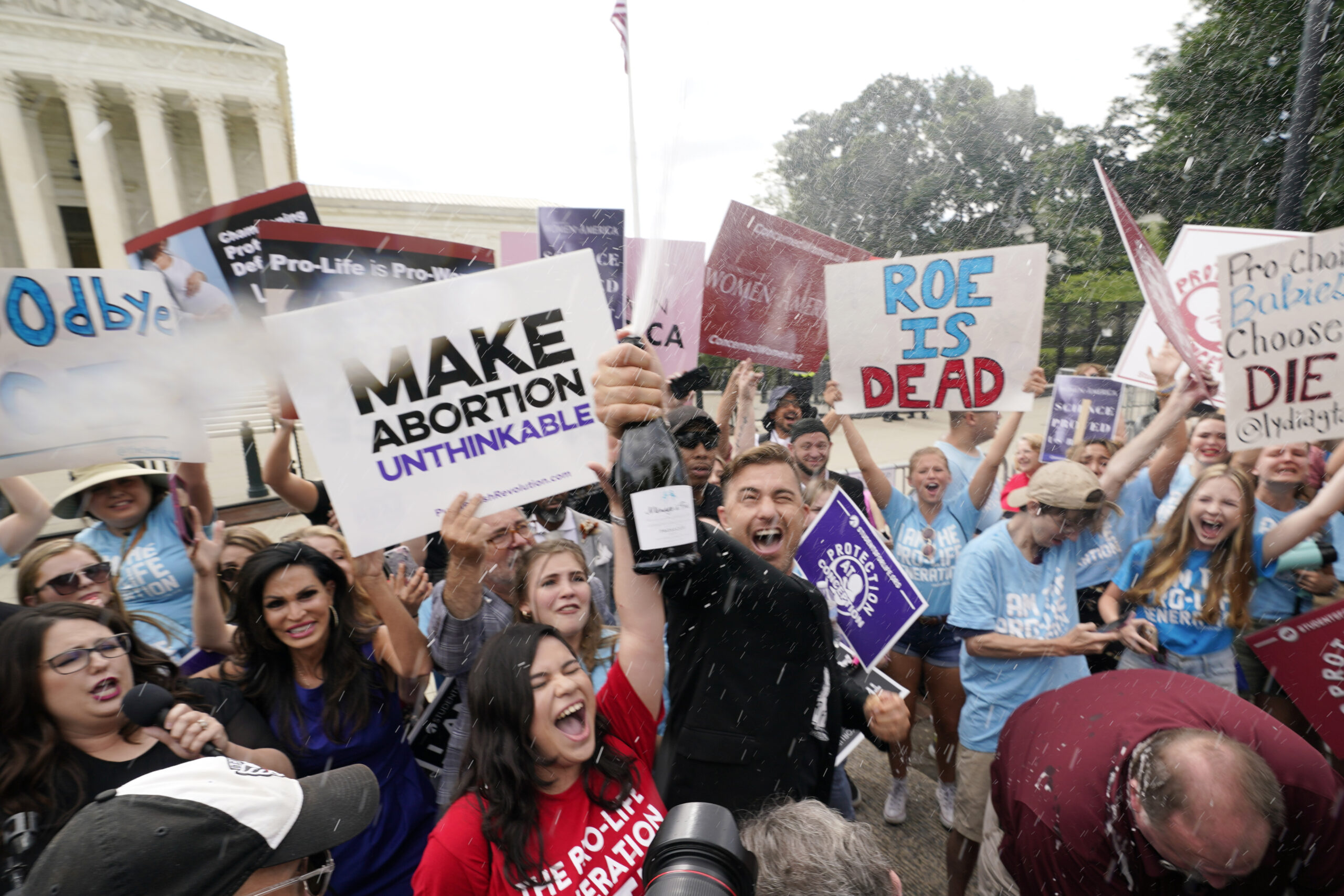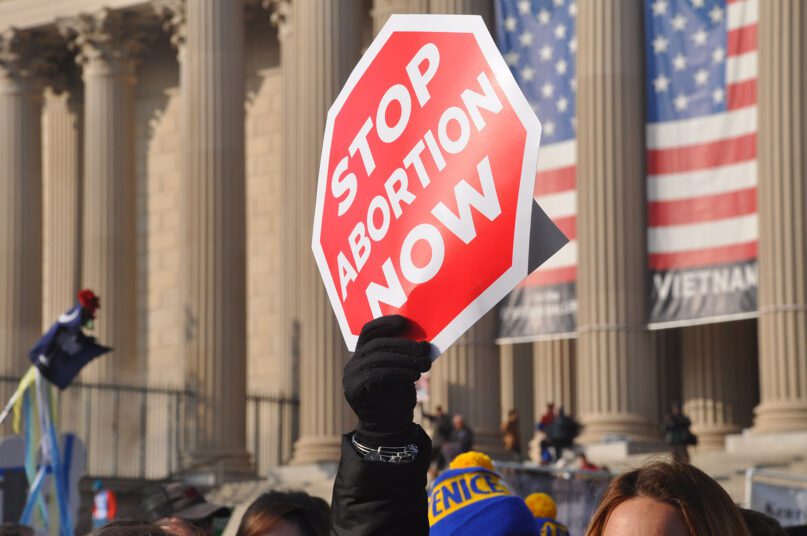(RNS) — “A Jewish Value” is how an advertisement from the National Council of Jewish Women recently characterized the freedom to end pregnancies at will. At the bottom of the graphic lies a helpful hashtag: #jewsforabortionaccess.
The group maintains that the U.S. Supreme Court’s recent decision in Dobbs v. Jacksoon Women’s Health Organization, which reversed Roe v. Wade, the 1973 ruling making abortion legal nationwide, is “egregious” and “a direct violation of … our Jewish tradition.”
There are different opinions among reasonably informed people about whether, from a Jewish perspective, Dobbs bodes well or ill — and whether Judaism’s views should inform secular law. What isn’t arguable is that our religion considers abortion forbidden in all but rare situations.
That is why the Orthodox Jewish group Agudath Israel, for which I work, welcomed the Dobbs decision. While “there are certain extraordinary circumstances where our faith teaches that a woman should terminate her pregnancy,” our statement read, and while “Agudath Israel fully supports her right to abortion in such situations, both as a matter of constitutional free exercise and moral principle … it must be reiterated that these cases are indeed extraordinary, rare exceptions to the rule that fetal life is entitled to protection.”
RELATED: Why post-Roe abortion bans must exempt religious Jews
Agudath Israel then expressed its hope that all Americans will come “to appreciate the moral magnitude of the abortion issue, and to embrace a culture that celebrates life.”
Whatever anyone’s view of the decision, however, no one has the right to insinuate that the Jewish religious tradition endorses abortion, even in the early stages of pregnancy, as a mere choice to be made for any reason, the bedrock position of the now reversed Roe decision.
This is the impression one may have drawn from listening to the reporting on different faith leaders’ reactions to Dobbs. In its coverage, National Public Radio quoted only a Reform rabbi and a spokeswoman for the Jewish Orthodox Feminist Alliance. While noting that “(d)ifferent rabbis will have different answers,” the report said that “Jewish values, Jewish identity, Jewish history also shape Jewish life,” leading American Jews to be, “on the whole, more liberal and more supportive of abortion access.”

A celebration outside the Supreme Court, June 24, 2022, in Washington. The Supreme Court has ended constitutional protections for abortion that had been in place nearly 50 years — a decision by its conservative majority to overturn the court’s landmark abortion cases. (AP Photo/Steve Helber)
Meanwhile, PBS Newshour’s report on Jewish reaction to Roe’s reversal was, in its entirety: “Several Jewish organizations said the decision infringes on Jewish traditions that accept the need for abortion.”
These takes obviously ignore Jews who embrace Jewish law, or Halakha, more strictly.
The media seems particularly interested in Jews who say their faith requires a liberal right to abortion. This is the basis of a lawsuit recently filed by Congregation L’Dor Va-Dor in Boynton Beach, Florida, which argues that abortion bans violate the First Amendment religious liberty guarantees.
That latter judgment may in fact be true, though it’s worth noting that L’Dor Va-Dor describes itself as “socially-conscious about our world, environment, and current events,” embraces “an all-inclusive, universal, and rational approach to Judaism… (that) celebrates spirituality” and aims at “building the Judaism of tomorrow!”
Yet it is Halakha that it invoked to challenge Florida’s abortion law, claiming that since the state’s law could affect its members’ religious lives by conflicting with Halakhic requirements, it is unconstitutional. For a “socially-conscious” group to claim that a law burdens its free-exercise rights to follow Halakha is … well, words like “disingenuous” and “cynical” are the quickest to come to mind.
As constitutional law professor Josh Blackman put it in an article for the journal Reason: “If virtually every other facet of halacha is not binding on members of this congregation, how could it be that this one teaching on abortion is binding — so binding, that a state’s prohibition of that teaching actually substantially burdens the free exercise of religion?”
RELATED: As Catholics mull Communion for politicians, Jews should look again at abortion issue
In the end, what matters more than social consciousness gussied up as religious devotion is the impression that the congregation and its leader have deposited in the public sphere: that Judaism embraces “abortion rights.”
It’s an impression that dovetails disturbingly with the dearth of Halakha-respecting views in the media, this news organization the notable exception.
As Agudath Israel’s public affairs director, I wrote the reporters at NPR last week to ask what made them omit traditional Orthodox voices.
So far, no response.
(Rabbi Avi Shafran is director of public affairs for Agudath Israel of America, a national Orthodox Jewish organization. He blogs at rabbishafran.com. The views expressed here do not necessarily reflect those of Religion News Service.)





